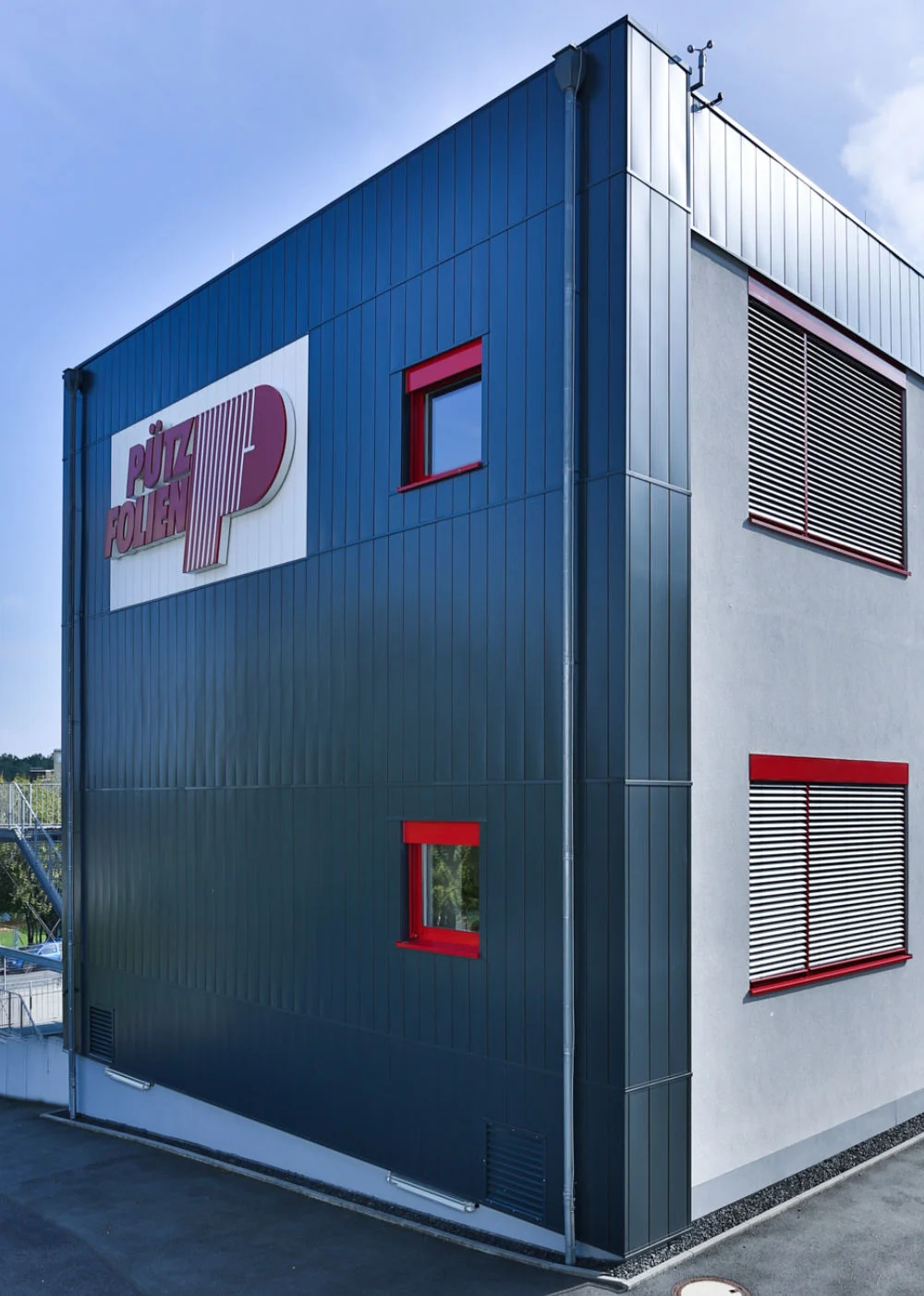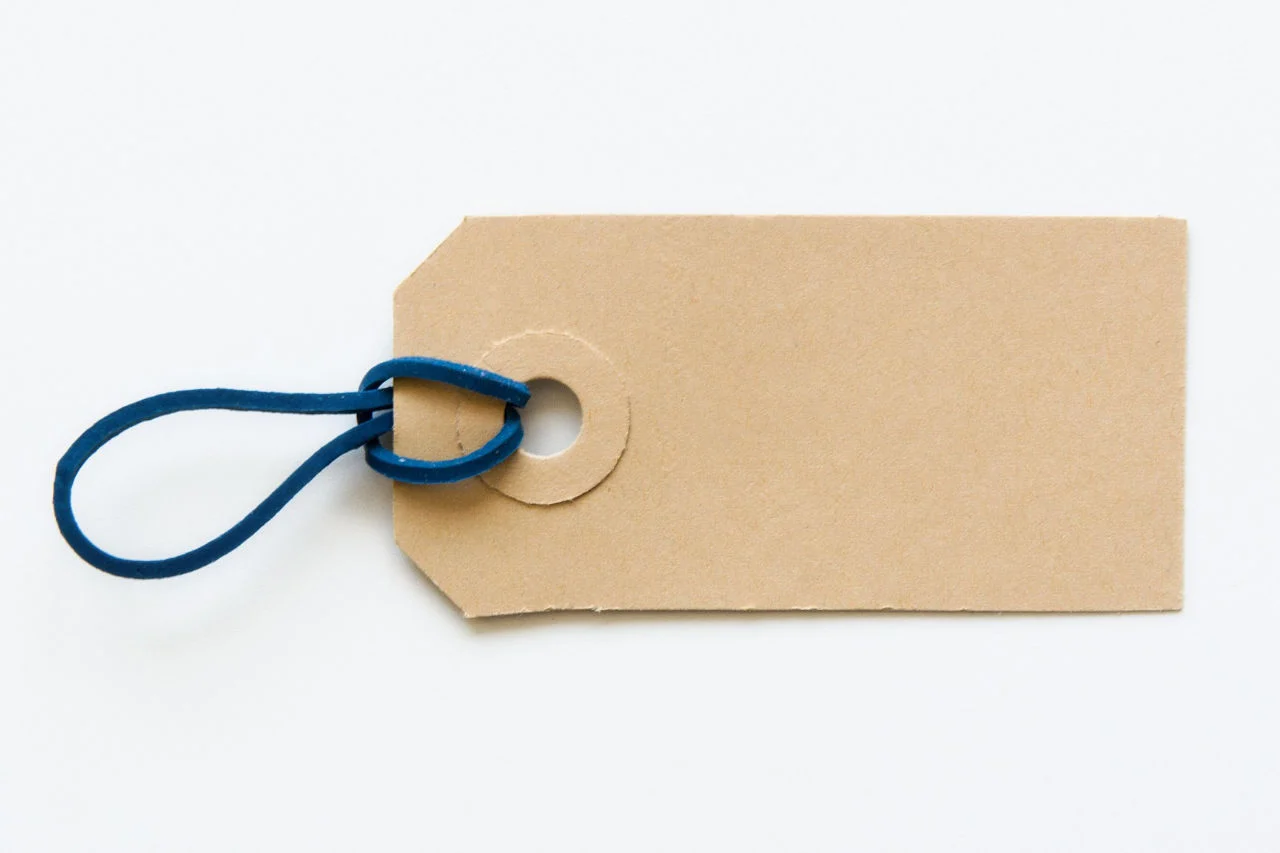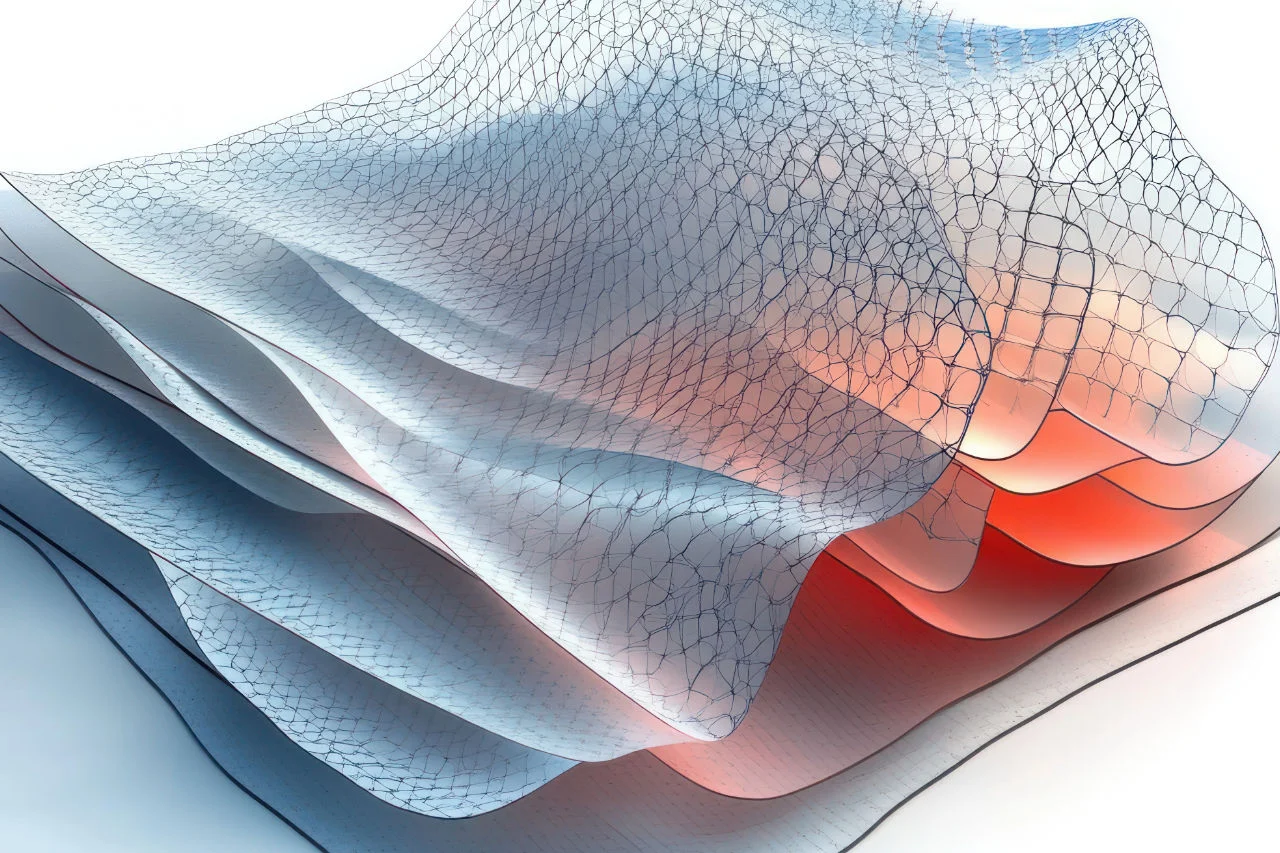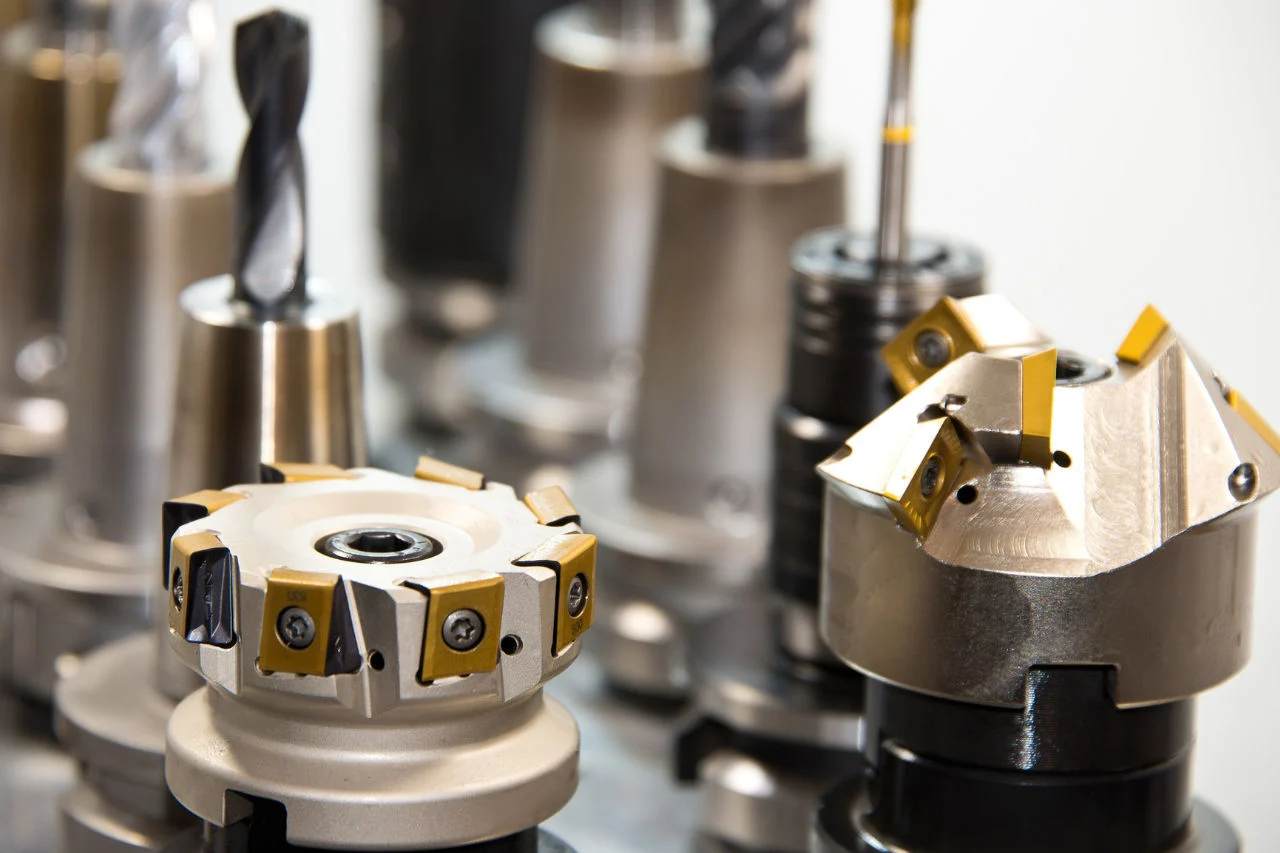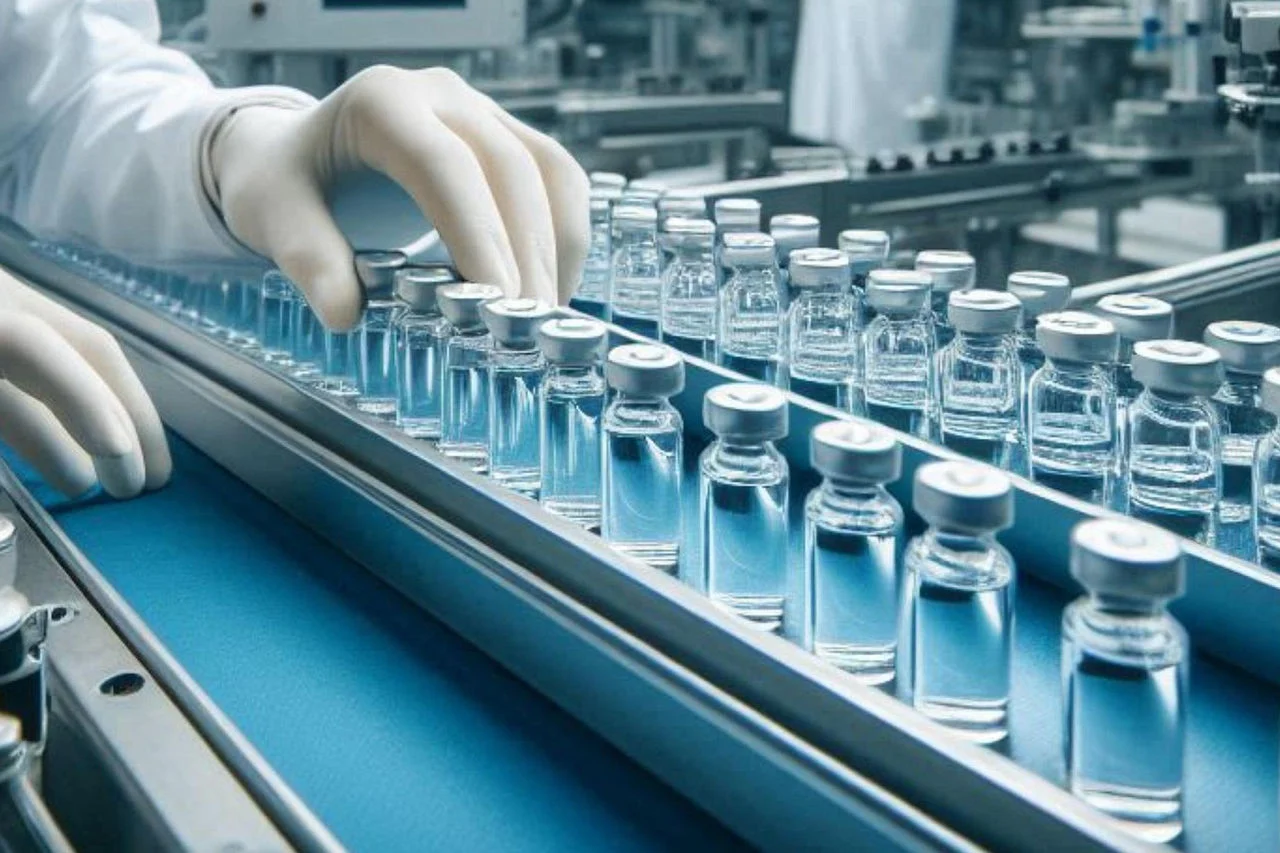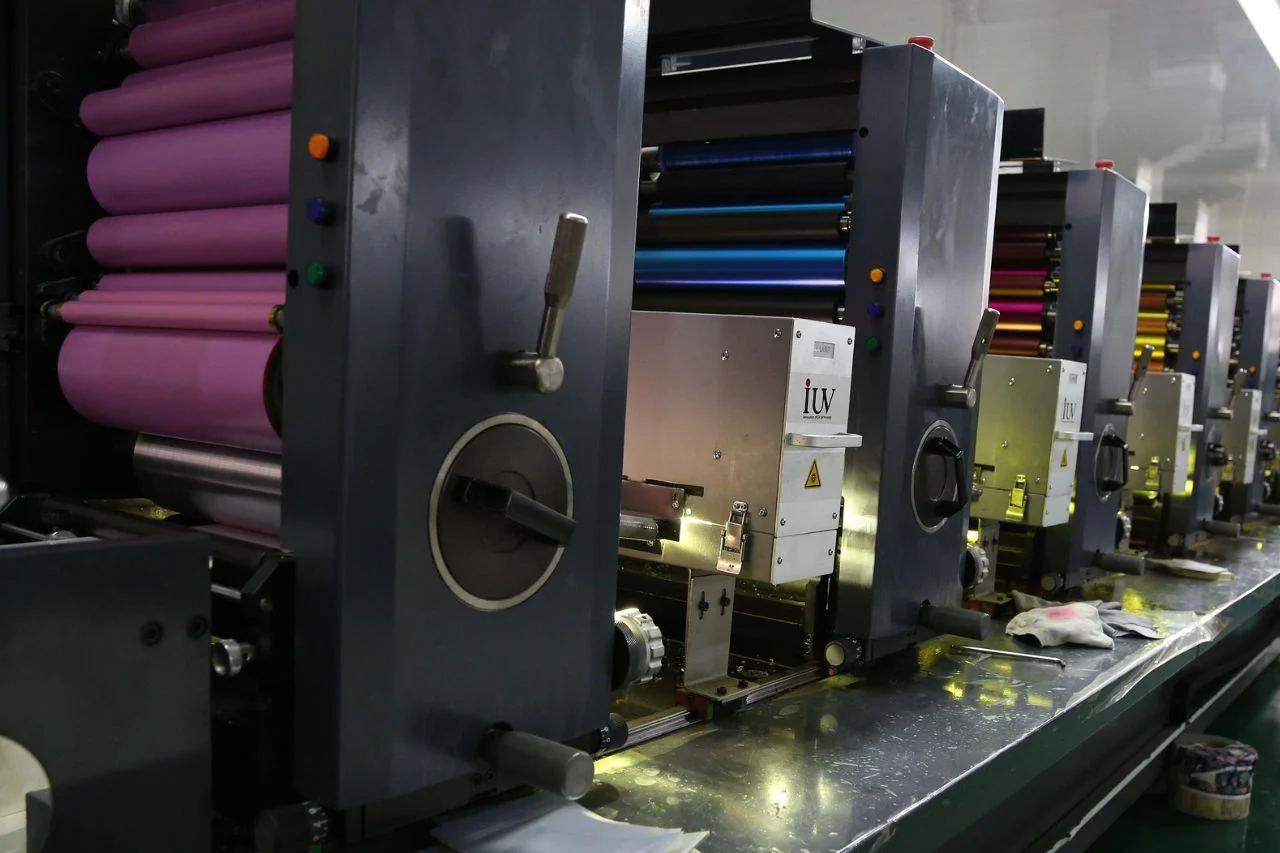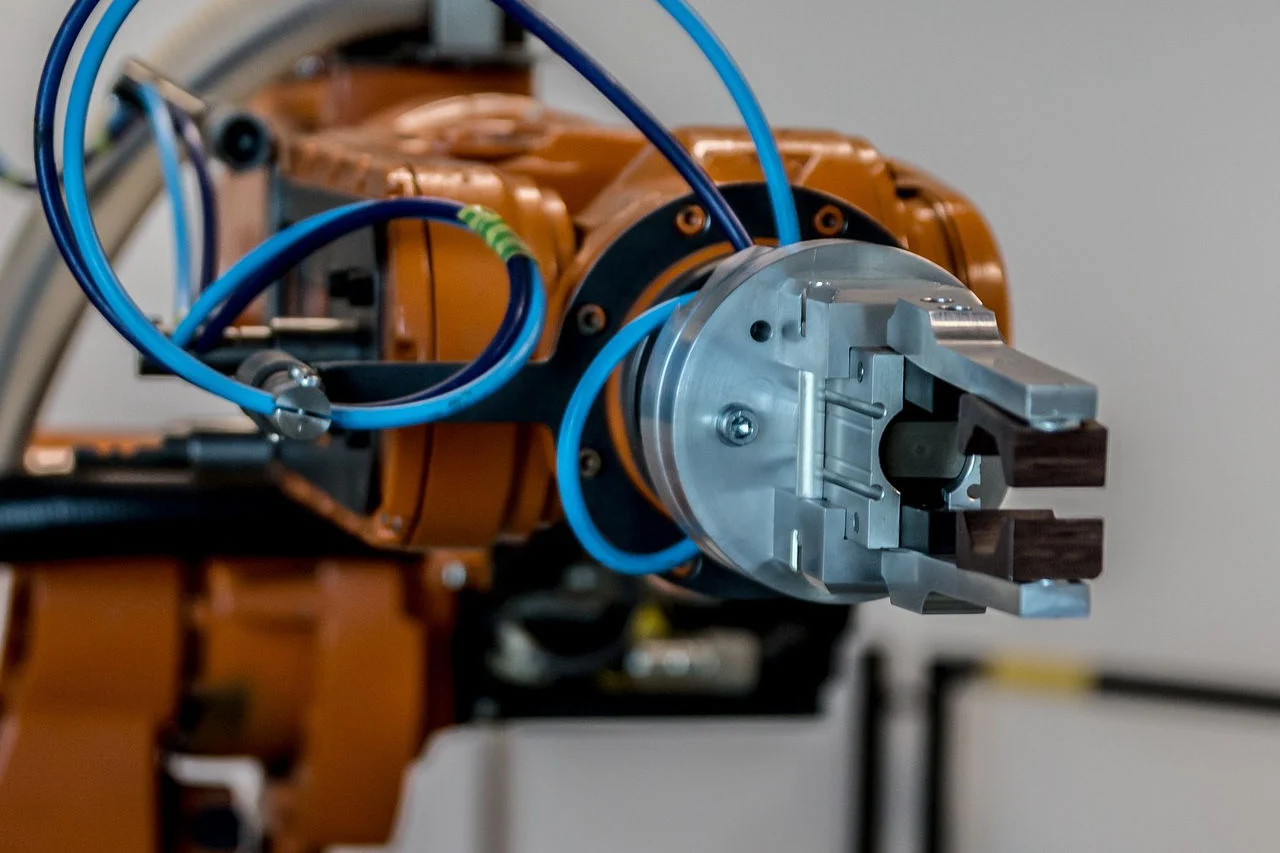- PEN
- What exactly is PEN (Polyethylene Naphthalate)?
- Send us your inquiry.
- PEN Film (Polyethylene Naphthalate) – High-performance plastic for demanding applications
- What is PEN Film (Polyethylene Naphthalate)?
- Superior Properties Compared to Conventional Polyester Films
- Areas of Application and Industries
- Technical Specifications and Manufacturing
- Economic Advantages and Sustainability
Converting – Refining – Toll Converting
Send us your inquiry.
Do you have any questions or require individual advice? Our team is happy to help. Contact us and learn more about our customized solutions in film converting.
PEN Film (Polyethylene Naphthalate) – High-performance plastic for demanding applications
In modern industry, engineers and product developers face growing challenges: higher operating temperatures, harsher environmental conditions and increasing demands on the durability of components. While conventional plastic films such as PET are reaching their limits, Polyethylene Naphthalate film offers an innovative solution for these demanding applications.
This high-performance film combines superior thermal stability with excellent mechanical properties, opening up new possibilities in electrical engineering, the packaging industry, and many other areas. With a glass transition temperature of 155°C and four times better hydrolysis resistance compared to standard polyester films, PEN sets new standards in materials science.
What is PEN Film (Polyethylene Naphthalate)?
Polyethylene naphthalate, or PEN for short, is a thermoplastic polyester that stands out due to its exceptional properties. As a high-performance plastic, this film is produced by polycondensation of naphthalene-2,6-dicarboxylic acid with ethylene glycol, creating a material with unique characteristics.
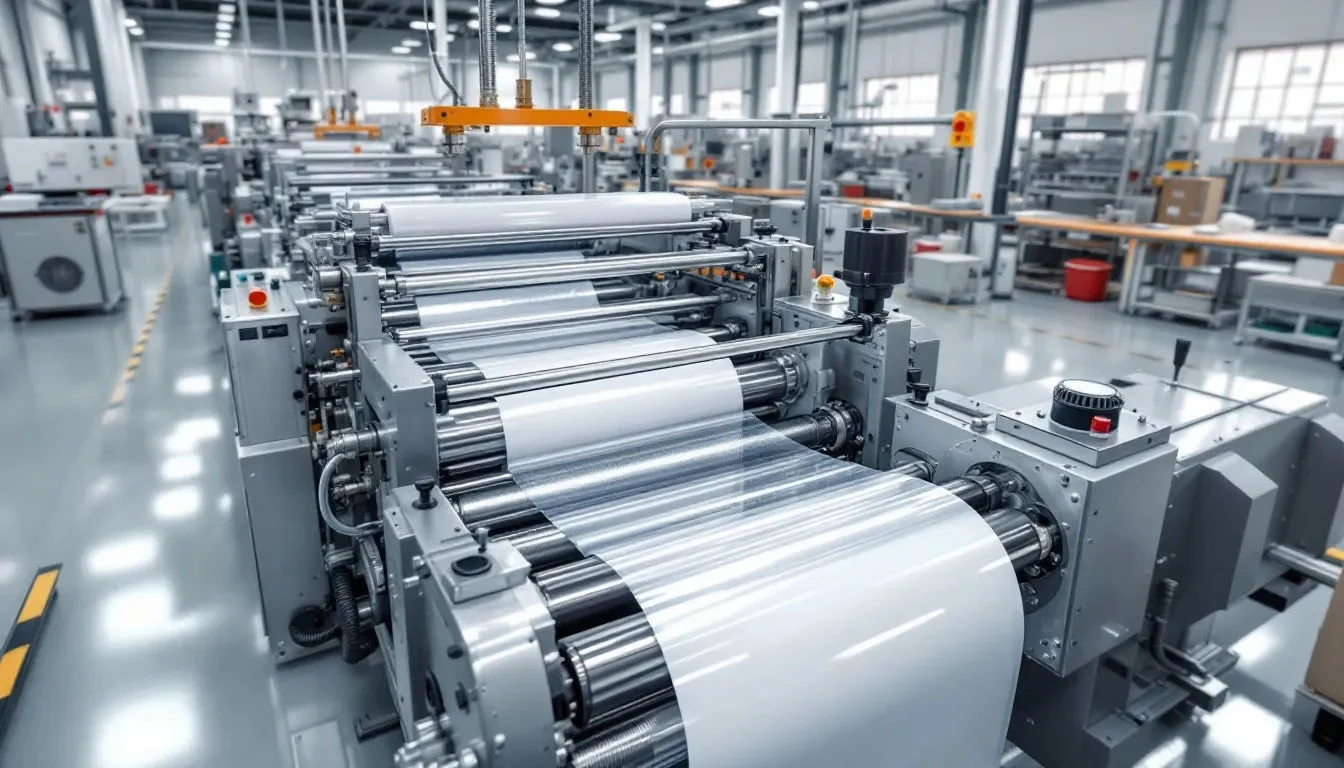
It is manufactured in a precise polycondensation process, in which the aromatic naphthalene rings give the material its characteristic rigidity and thermal stability. In contrast to PET, which has terephthalic acid units, the naphthalene structure ensures significantly improved properties, cold and heat resistance.
This material is available on the market under the trade names Teonex from Teijin and Kaladex from Mylar Speciality Films.
In appearance, PEN film is a colorless to slightly cloudy plastic film with high transparency. This optical clarity makes it particularly interesting for applications where both stability and low haze are required. The physical properties include a density of 1.36 g/cm³ and an impressive tensile strength of up to 230 to 350 MPa.
Superior Properties Compared to Conventional Polyester Films
Temperature class F, with a glass transition temperature of 155°C, represents one of the most crucial advantages of PEN films. While conventional PET films lose their structural integrity at around 110°C, polyethylene naphthalate retains its mechanical strength up to significantly higher temperatures (Class F 155°C).
This increased temperature resistance allows for use in areas previously reserved for polyimide films – but at a significantly more favorable price. Dimensional stability is maintained even under prolonged heat exposure, which is of enormous importance, especially in electrical engineering.
Another critical difference is evident in its hydrolysis resistance. PEN films exhibit four times higher resistance to water vapor and moisture than comparable PET materials. This property is crucial for applications in humid environments or with direct contact with water.
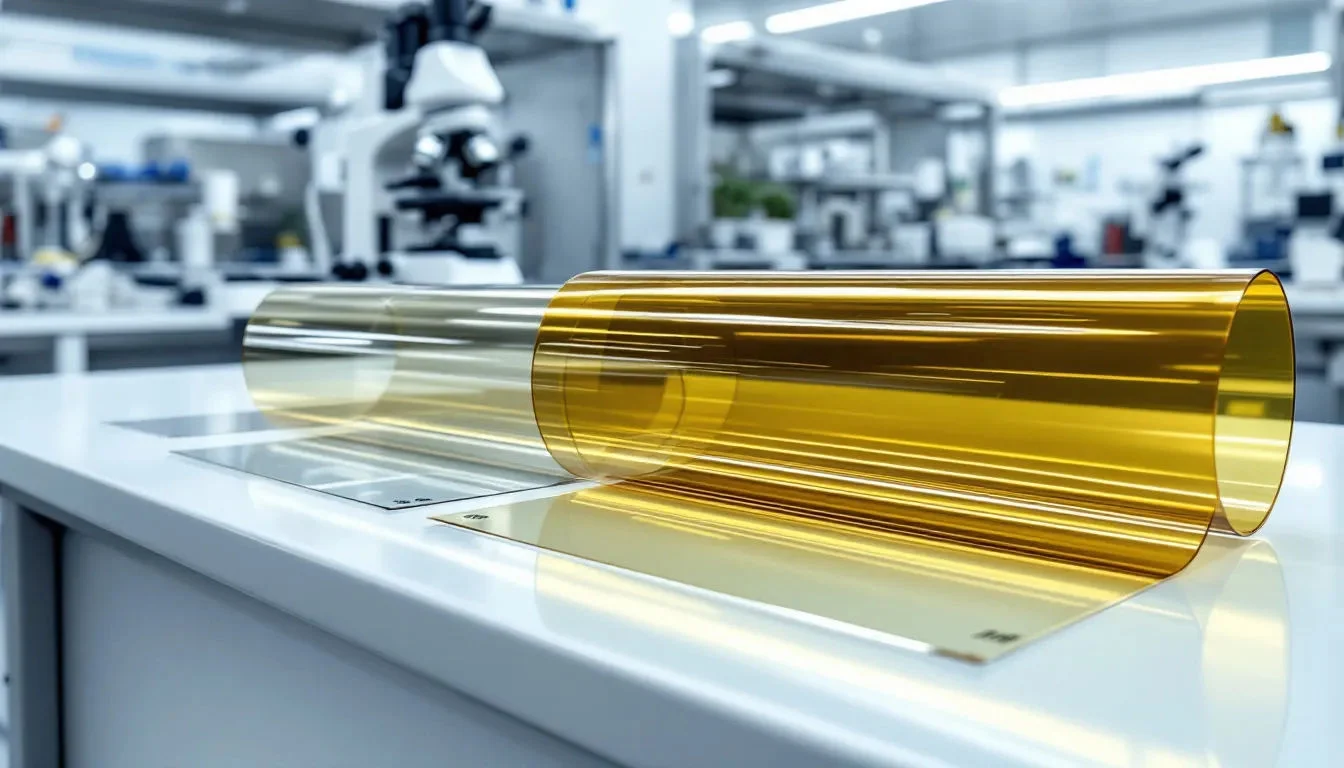
The shrinkage of only 0.1-1.0% under thermal stress significantly exceeds the values of conventional polyester films. This low dimensional change is particularly advantageous in precision electronics, where even the smallest deformations can lead to functional failures.
In terms of UV resistance, polyethylene naphthalate shows exceptional stability. While other plastics yellow or become brittle under UV exposure, PEN retains its optical and mechanical properties over long periods of time. This resistance makes it ideal for outdoor applications and optical components.
The electrical insulation properties reach peak values with a dielectric strength of up to 300 kV/mm. These excellent dielectric properties, combined with temperature resistance, make PEN the first choice for high-voltage applications and critical insulation tasks.
Areas of Application and Industries
The versatile properties of PEN films open up a wide range of applications for various industries. From electrical engineering to the processing industry, this high-performance plastic is used wherever standard materials reach their limits.
Electrical Engineering and Electronics
In motor construction, polyethylene naphthalate forms the backbone of modern insulation systems for electric motors and generators. The high temperature class F makes it possible to operate motors at higher outputs without the insulation failing. This leads to more compact designs and higher efficiency.

In transformers and coils, PEN film takes on critical tasks in interlayer insulation and winding insulation. The combination of high dielectric strength and temperature resistance makes it possible to guarantee reliable phase isolation even under extreme operating conditions.
In capacitors, the material reaches its peak performance in high-voltage applications up to 300kV/mm. As a capacitor film, PEN offers an excellent alternative to more expensive materials without compromising on safety. The low moisture absorption and high stability make it the ideal choice for use in demanding capacitors.
Flexible Printed Circuits (FPC) benefit significantly from the mechanical properties of PEN films. As a substrate material for printed circuit boards, it offers the necessary rigidity while maintaining flexibility. These properties are particularly in demand in modern electronic devices, where miniaturization and reliability are equally important.
Adhesive tapes for electrotechnical applications use PEN as a carrier material to ensure reliable connections even at high temperatures and in chemically aggressive environments. The chemical resistance to various chemicals makes this case particularly valuable.
Other Industrial Sectors
In medical technology, sterilizable films for medical devices enable new fields of application. The possibility of steam sterilization at high temperatures makes PEN a preferred material for critical medical applications.
Optical displays and labels use the excellent UV resistance and optical clarity of the material. In combination with dimensional stability, durable and precise optical components are created.
Automotive engineering and aerospace rely on PEN films in areas with extreme temperatures and chemical stresses. Under the hood of vehicles or in aircraft engines, the material proves its worth due to its exceptional heat and chemical resistance.
Technical Specifications and Manufacturing
The technical data of polyethylene naphthalate film show impressive values that clearly set it apart from other plastic films. With a density of 1.36 g/cm³, the material is in the optimal range between lightweight construction requirements and mechanical robustness. The tensile strength of 230 to 350 MPa exceeds most standard polyester films and reaches values that are otherwise only achieved by significantly more expensive high-performance plastics.
The biaxial stretching process during manufacturing imparts its characteristic properties to PEN films. Controlled stretching in two directions creates an optimized molecular structure that maximizes both mechanical strength and dimensional stability. This process is crucial for the uniform distribution of properties across the entire film surface.

Available film thicknesses range from thin 12 µm for special electronic applications to robust 250 µm for mechanically stressed components. This wide range of thicknesses makes it possible to find the optimal balance between material and component costs for every application.
Standard widths are typically offered in rolls up to 1020 mm wide, with custom-made products possible according to customer requirements. The roll as a delivery form facilitates processing in automated production processes and reduces material waste.
The quality standards UL 94 VTM-2, IEC 60674-3-8:2017 and RoHS compliance guarantee compliance with international standards. These certifications are of crucial importance, particularly in regulated industries such as electrical engineering, medical technology and automotive technology. The NDC (Non-Destructive Control) methods during production ensure consistent quality.
PEN Film Property Profile
| Property | Value | Unit |
|---|---|---|
| Density | 1.36 | g/cm³ |
| Tensile strength | 230-350 | MPa |
| Glass transition temperature | 155 | °C |
| Dielectric strength | up to 300 | kV/mm |
| Shrinkage | 0.1-1.0 | % |
| Thickness range | 12-250 | µm |
Economic Advantages and Sustainability
The price-performance ratio of PEN films optimally positions them between inexpensive PET films and expensive polyimide films. While the acquisition costs are higher than for standard polyester films, these are quickly recouped through significantly improved performance and longer component lifespan.
Cost savings result from the higher efficiency in the application. The possible thinner wall thicknesses with the same mechanical strength reduce the use of materials. At the same time, the higher temperature resistance enables more compact designs, which saves both material and installation space.
The longer lifespan of devices equipped with PEN films significantly reduces maintenance costs and downtime. In critical areas such as transformers or electric motors, the saved follow-up costs can exceed the higher material costs many times over.
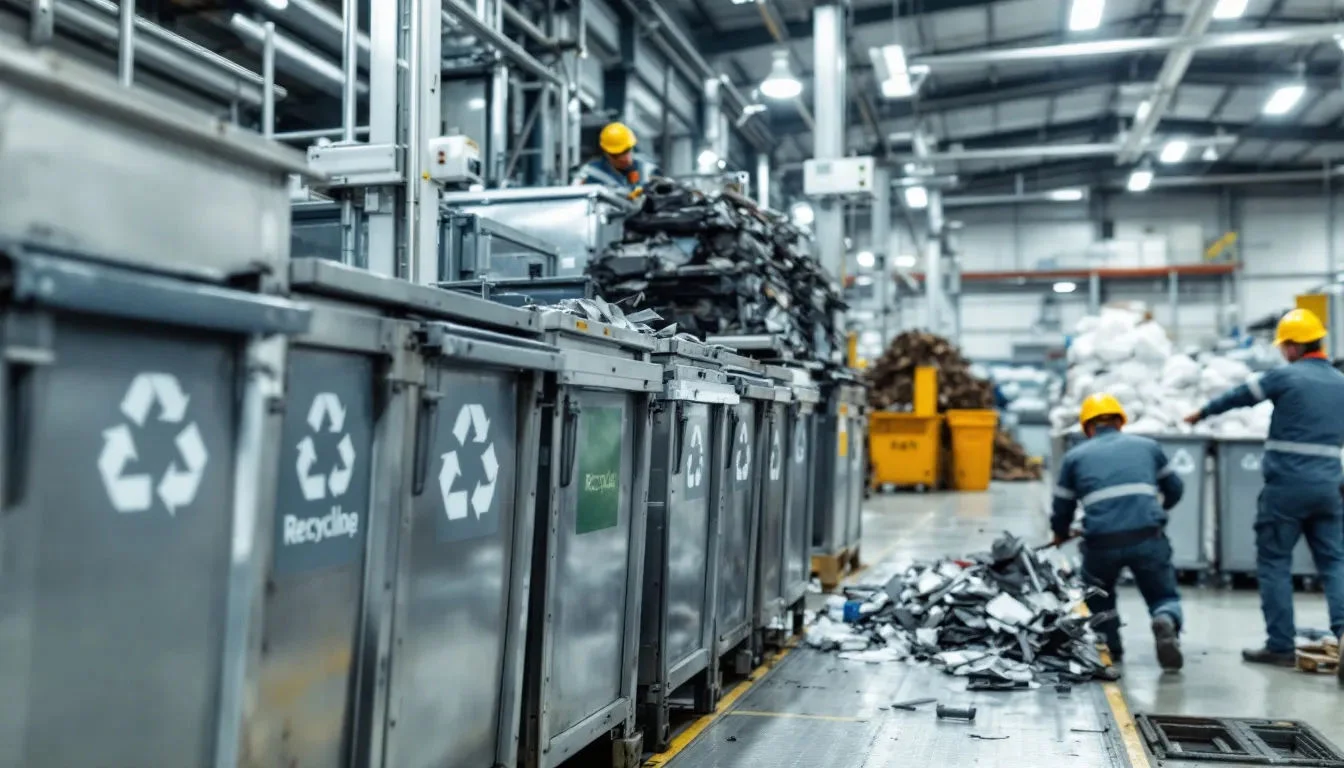
The current recycling situation for polyethylene naphthalate still poses challenges, as the existing infrastructure is mainly designed for PET. However, intensive research approaches are underway for improved recycling processes and the development of bio-based raw materials based on renewable materials.
Research approaches for bio-based raw materials focus on the production of naphthalene derivatives from plant-based sources. This development could significantly improve the sustainability of PEN films in the coming years while simultaneously reducing dependence on fossil raw materials.
The contribution to sustainability is particularly evident in the extended product life. By using PEN instead of shorter-lived materials, the frequency of replacement and maintenance is reduced. This leads to lower overall resource consumption over the complete life cycle of a product.
In an era in which companies are increasingly focusing on sustainable solutions, polyethylene naphthalate film offers the opportunity to achieve both economic and ecological goals. The combination of high-performance properties and the potential for sustainable production processes makes PEN a future-oriented material for demanding industrial applications.
The demand for more environmentally friendly alternatives is continuously growing, and PEN films are well-positioned to meet this demand. Through continuous improvements in manufacturing and recycling, this material will play an increasingly important role in sustainable industrial production.
Disclaimer: The technical data, properties, and application areas mentioned on this page are based on information from our suppliers and typical empirical values. They do not represent guaranteed specifications. Production-related deviations, further developments, or changes in product properties are possible at any time. The actual suitability of a film type for a specific purpose must be checked in each individual case. Please explicitly inquire about availability and current specifications before placing an order. All information is provided without warranty.

